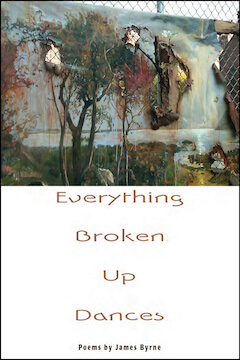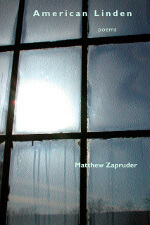Monkey Lightning
by Martha Zweig
$19.95
“What do you get when you cross Flannery O’Connor with Gerard Manley Hopkins? Something sprung of rhythm, fierce of feeling, dappled down and doubled over, whistled out of terror and intelligence. Welcome to the work of Martha Zweig.” —Heather McHugh
Format: paperback
2 in stock
“At her most delicious, Zweig serves a poetry of forks, of mixed metaphors, and divergent definitions. She claims to be ‘meek as you-know. Me, reportedly,’ but when it comes to overhauling idioms, she’s nothing of the sort: is that line claiming she’s ‘meek, as you know’? Is it sarcastically insisting ‘you know me, reportedly’? When fostering such confusions — slowing our reading to a grand-still — Zweig seems like the ‘bee’s news,’ her work an electrifying ‘ringling & brotherly-circuits.’”—Abigail Deutsch, Poetry
“What do you get when you cross Flannery O’Connor with Gerard Manley Hopkins? Something sprung of rhythm, fierce of feeling, dappled down and doubled over, whistled out of terror and intelligence. Welcome to the work of Martha Zweig.” —Heather McHugh
Martha Zweig’s fourth collection of poems is her strongest. With a voice and verbal texture like no other contemporary poet’s, she transfigures the sonorous traditional English lyric with an audacity that’s rugged and unruly but sublimely literary. Zweig’s etymological wizardry recalls the intoxicating word-play of the rustics and faeries in Shakespeare’s Midsummer Night’s Dream. Yet in their dramatic candor, Zweig’s new poems are also as bull’s-eye direct as John Berryman’s blues-drenchedDream Songs. From the howling, buzzing, frosty reaches of the north woods we bring you… Monkey Lightning! The best work yet by a virtuoso conjuror.
Additional information
| Weight | .4 lbs |
|---|---|
| Dimensions | 6 × .5 × 9 in |
Four Pennies
Baby don’t cry:
we’ll be mother & father &
day after day
we’ll have bread & meat & milk &
oranges & sing songs to
sleep & wake up, you’ll see;
every once in a while
we’ll say over by heart
the names we know the birds by &
names of stars we know,
& close eyes & close
hands inside the grown hands & go
keep time & follow the words.
Baby don’t cry:
this is where we live,
here is where we have our
breakfast & birthday &
red boots & red shoes;
one penny is yours to keep,
one penny is mine to keep,
one more for the story & one
more for the storyteller who
told me to tell you
it comes true.
Invocation
So perched the preying
mantis as if to beg pardon:
I have always lived in a little grass shack.
It doesn’t take an everlovin’ blue-eyed
hurricane to witness God’s
will leaving you for dead wrong, either.
Yet I love you still,
my shamelessly unreliable, I
pick you again for the sheer mind.
Even admit it: I did betray the slightest
emotion. Sad day to have come to, hint
of the heartfelt all chewed
over & spit for motes & beams, yet pluck
my ripe rows in the all-seeing eye’s corner.
I like a slow season. Allow the thing
its sweetening heat, fruit-heart, the hush
it adjusts to, fostering seed.
With luck, gobbled up & dropped again
in fresh indignities of dung to prosper far
afield, prove autoerotic
enough to support my song.
Cohabitation: Mind and Body
There’s no sense
in settling down on the body’s terms.
Finally it will turn you out.
It comes to no matter
in the end that you have fed it,
warmed it, served its peculiar whims
all this time;
it grows balky and snappish,
will not be moved by any
appeal to occasions
of better sympathy. There’s a fatal
ruin in the arrangement.
Still, every
mother’s daughter knows there’s a fine
hum on the skin in season,
and one can’t
go against nature forever.
In any case, it involves only
that imminence of heartbreak
on which a certain kind
of love thrives.


 Participant in the semi-revolutionary turmoil of the 1960s, Martha Zweig worked for a decade in the garment industry at Concord Manufacturing in Morrisville, Vermont, including a term as shop chair for the International Ladies’ Garment Workers’ Union, and another ten years as an advocate for seniors in northern Vermont, where she has lived since 1974. Zweig received a Whiting Writer’s Award in 1999, and her poems have been published in many of the nation’s leading literary and political journals, including Poetry, Prairie Schooner, Field, The Boston Review, The Progressive, The Kenyon Review, and Sojourner. Zweig’s previous books include Vinegar Bone and What Kind (Wesleyan, 1999 and 2003). Currently she volunteers for North Country Animal League and for Restorative Justice, a community organization promoting a post-police process based on the ‘truth and reconcilation’ approach developed in South Africa.
Participant in the semi-revolutionary turmoil of the 1960s, Martha Zweig worked for a decade in the garment industry at Concord Manufacturing in Morrisville, Vermont, including a term as shop chair for the International Ladies’ Garment Workers’ Union, and another ten years as an advocate for seniors in northern Vermont, where she has lived since 1974. Zweig received a Whiting Writer’s Award in 1999, and her poems have been published in many of the nation’s leading literary and political journals, including Poetry, Prairie Schooner, Field, The Boston Review, The Progressive, The Kenyon Review, and Sojourner. Zweig’s previous books include Vinegar Bone and What Kind (Wesleyan, 1999 and 2003). Currently she volunteers for North Country Animal League and for Restorative Justice, a community organization promoting a post-police process based on the ‘truth and reconcilation’ approach developed in South Africa.


